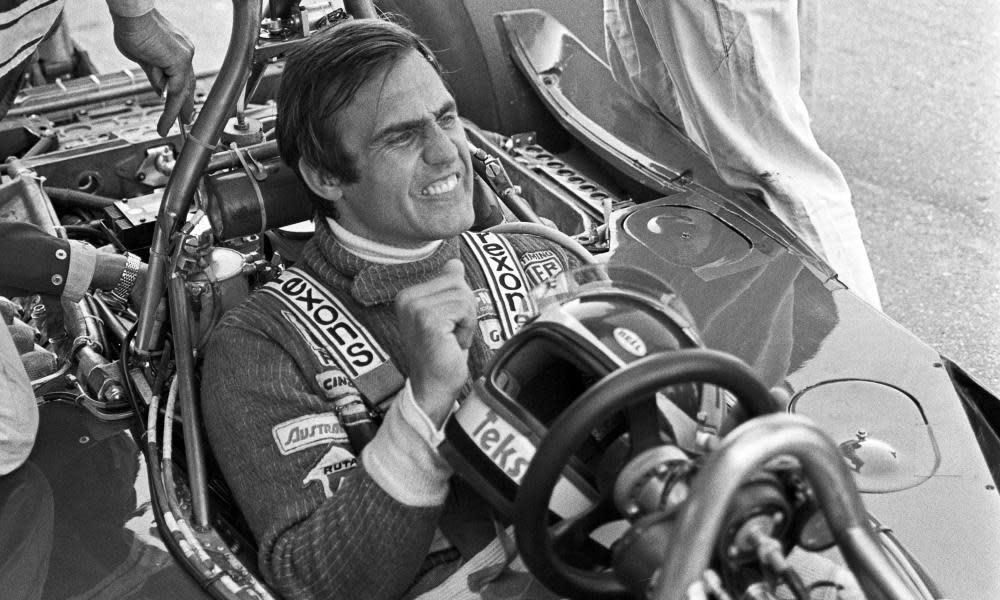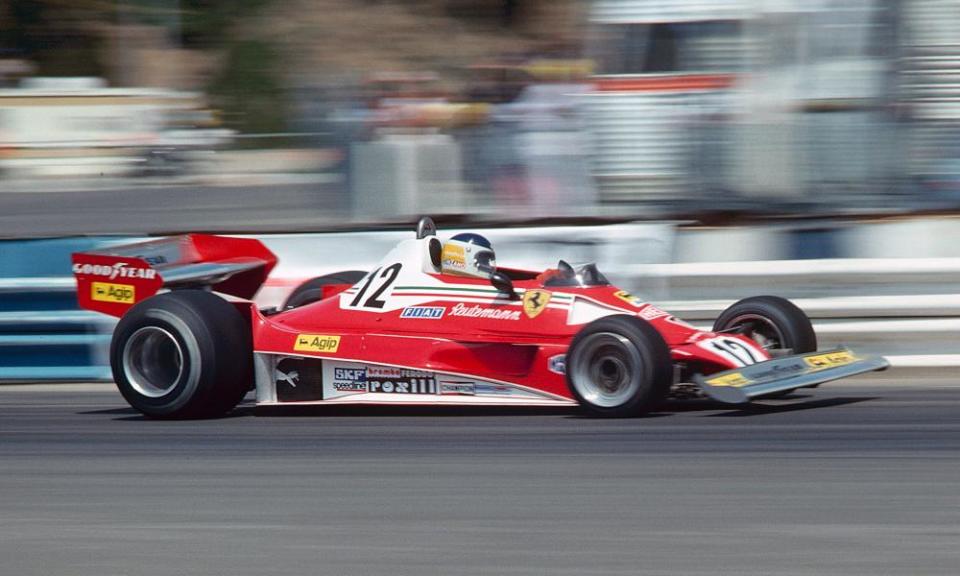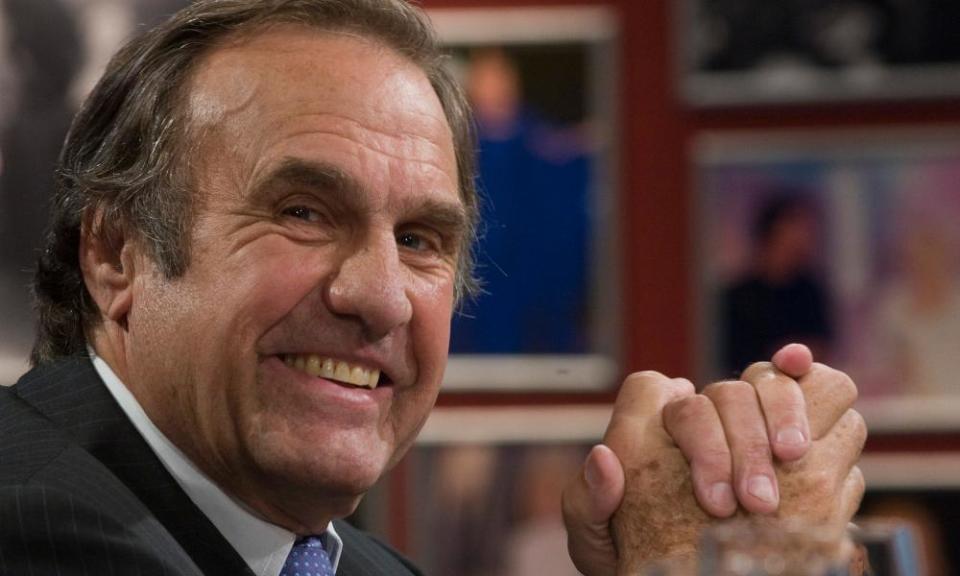Carlos Reutemann obituary

In the years when Carlos Reutemann competed in Formula One, between 1972 and 1982, the pen portrait of the Argentinian driver printed in the programme for the Monaco Grand Prix memorably described him as possessing le physique d’un séducteur du cinema. Reutemann, who has died aged 79, did indeed resemble the popular idea of a South American racing driver: tall, dark-haired, with a strikingly saturnine visage that could open into a charming smile.
But there was an enigmatic side to him, a moodiness that could put a dampener on his performances.
Never was this more damagingly apparent than on the day in Las Vegas when the competitive fire that had carried him to the brink of winning the 1981 world championship seemed to have been mystifyingly extinguished. On a course laid out in the vast car park of the Caesars Palace hotel, the title was snatched away from him by Nelson Piquet.
It was his last chance to become the second Argentinian to capture the title, after Juan Manuel Fangio, whose five championships in the 1950s had made him a national hero. A few months later, two races into the 1982 season, Reutemann walked away from the sport, offering no explanation for his abrupt decision to end a career that had brought 12 wins from 146 races for Brabham, Ferrari, Lotus and Williams.

No one suspected that within a few years he would be embarking on his life’s second and equally remarkable chapter. In 1991 he was elected governor of Santa Fe, his home province, followed by membership of the national senate. At times, notably before the 2011 general election, there was talk that he was preparing to campaign for the presidency, but the hopes of his supporters were left unfulfilled after he withdrew. “I saw something I didn’t like,” he said, offering no further explanation.
Born in Santa Fe to Flora Molina, of Italian ancestry, and her husband, Enrique Reutemann, a cattle rancher of mixed Spanish and German blood, he began his competition career in saloon cars. After showing promise, in 1970 he followed in Fangio’s footsteps when the Automóvil Club Argentina sent him to Europe, sponsoring a season at the wheel of a Formula Two Brabham. A second season showed improved results, taking him to second place in the final championship standings behind Ronnie Peterson of Sweden, already a star in F1.
Reutemann graduated to the top tier in 1972 when he was signed up by Bernie Ecclestone, the new owner of the Brabham team. The partnership began promisingly when Reutemann started the first race of the season, his home grand prix in Buenos Aires, from pole position. Seventh place in the race itself was a more accurate indication of results to come, with a fourth place in Canada his best finish. There was little improvement the following season until the final round at Watkins Glen, New York, gave him his first podium finish, in third place.
In 1974, following Ecclestone’s recruitment of the brilliant young South African designer Gordon Murray, the new Brabham BT44 took Reutemann to his first grand prix victory at Kyalami, in South Africa. Further wins followed at the Österreichring and Watkins Glen, where he dominated the race from pole position. There would be only one win, at the Nürburgring in Germany, in 1975, but a series of top-three finishes enabled him to finish third in the championship.
The team’s switch from the reliable Cosworth V8 engine to the temperamental Alfa Romeo flat-12 turned 1976 into a disaster. When Niki Lauda almost died in a fiery crash at the Nürburgring, Reutemann accepted Enzo Ferrari’s invitation to leave Brabham and replace the Austrian for the final races of the season.
A furious Lauda, stung by the team’s lack of faith in his ability to recover from his injuries, returned in time for the Italian Grand Prix, forcing Ferrari to field three cars rather than two. Lauda qualified fifth, two places ahead of Reutemann, and finished a heroic fourth, five places ahead of his new team-mate.
The two made an uncomfortable pairing in the Italian team for the 1977 season. An early victory in Brazil for Reutemann’s Ferrari 312T2 proved a false dawn as three wins in a similar car helped take Lauda to his second title before, still embittered by his treatment, the Austrian walked out to join Brabham with two races still to go.
That left Reutemann as the team’s No 1 for 1978. Wins at Rio de Janeiro, Long Beach in California, Brands Hatch and Watkins Glen took him back up to third place in the final championship standings, but at the end of the season it was announced that he would be replaced by Jody Scheckter.
A move to Lotus for 1979 turned out badly when the latest version of the previous year’s title-winning car yielded a couple of second places but no wins. A disillusioned Reutemann accepted an offer for 1980 from Frank Williams, whose nimble FW07, designed by Patrick Head, took him to victory at Monaco and another third place in the championship. After wins in Brazil and Belgium, the 1981 title appeared to be his for the taking as he started the final round from pole position in Las Vegas, only for his hopes to shrivel in the desert heat. He finished eighth, blaming handling problems and a missing fourth gear.

After returning to run the family ranch, he entered politics.
Representing the Justicialist party, founded by Juan and Evita Perón, he served as state governor (1991-95 and 1999-2003), following which he was elected to the national senate, winning further terms in 2009 and 2015.
Known throughout Argentina by his childhood nickname of “Lole”, he was still a senator, now representing the centre-right coalition known as Cambiemos, when he entered a New York hospital to undergo surgery for liver cancer in 2017.
His first marriage, to María “Mimicha” Bobbio, a regular presence on the pit wall during his years in Europe, ended in divorce. He is survived by his second wife, Verónica Ghio, whom he married in 2006, by the two daughters of his first marriage, Cora and Mariana, and by a grandson.
• Carlos Alberto Reutemann, racing driver, cattle rancher and politician, born 12 April 1942; died 7 July 2021

 Yahoo News
Yahoo News 
